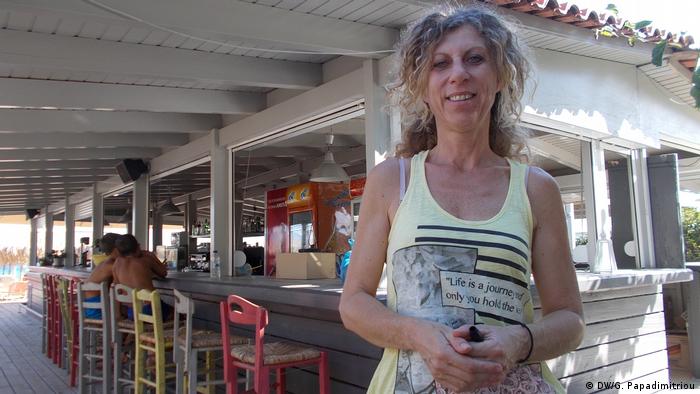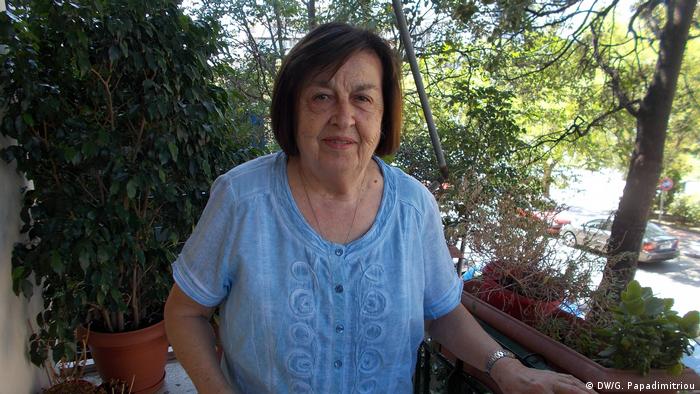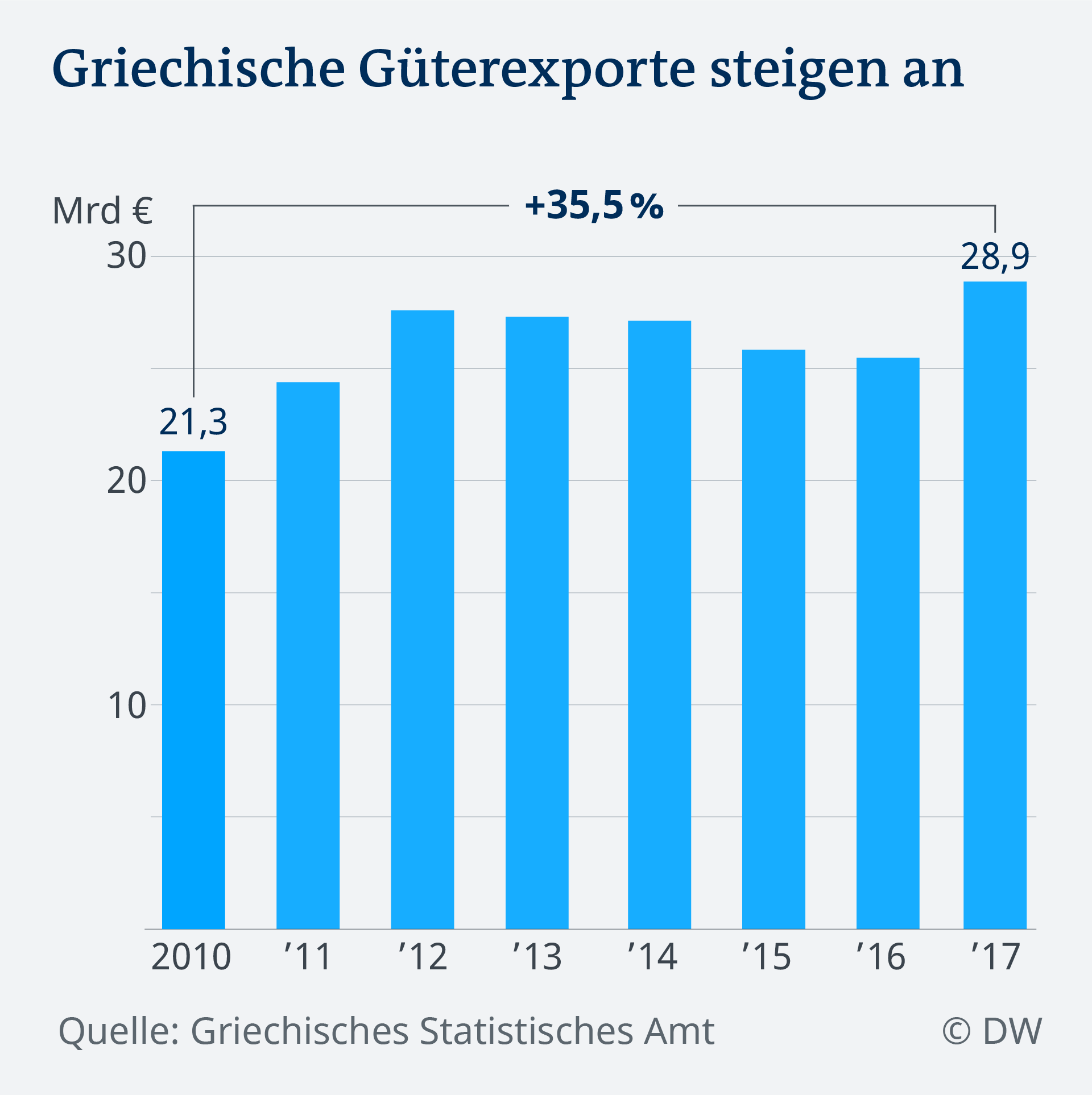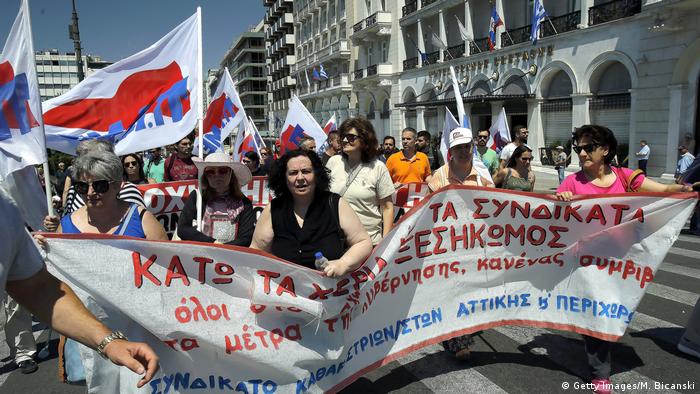The former problem child of the EU in the future without a bailout: After eight years of financial aid to Greece seems to recover economically. Jannis Papadimitriou on cautiously optimistic Hellenes.

This summer was very strange, says Polyxeni Koutsantoni, the owner of a bar on the beach in Marathon, on the East coast of Athens. “In June we had heavy rains, at the end of July our coast has been plagued region of devastating fires, and yet I have the impression that more and more vacationers are on the road, and even a little more money to spend,” she says in a DW interview. Big jumps are not of course there. A carefree holiday mood like the time before the outbreak of the debt crisis, is also not apparent. “But people feel a bit free lately, the you realize already.”
For 25 years, the energetic woman runs the beach bar with her husband. Most of the customers are Greeks, but, more recently, the Russians and the French would come to Marathon. When it gets hectic, you need to also help their three daughters at the counter. New staff is out of the question. “Especially in times of crisis, you should keep the costs in check,” warns Koutsantoni. And adds with a Smile: “to save costs and have patience – that’s my Motto.”

Family entrepreneur Polyxeni Koutsantoni: “to save costs and have patience”
A Motto that could equally apply to the whole of Greece, which will be released on Monday from the bailout programme, the Euro-Zone. All the politicians in Athens and Brussels, to explain the debt crisis. But the family entrepreneur does not believe that the economic problems of the country, in fact. The best example: the tourism as a main pillar of the Greek economy. Here, the country achieved a quarter of its economic output – and the trend is rising. But the taxes are high. “The VAT on our services is 24 percent, which nobody keeps but you can,” complains Koutsantoni.
Cuts for pensioners
Especially tough cuts had to accept the pensioners in Hellas. For pensioners like Mary Tsoni, a retired dentist from Athens: a Total of 35 years, she has worked in private practice, and also for the once-largest health insurance company in the country. This gave rise to a pension entitlement of more than 1,000 euros a month. Since the outbreak of the debt crisis, their pension has shrunk, however, by half. Further cuts threaten to 2019, a reduction of the annual tax amount. Sue does not want to Mary Tsoni nevertheless: “After all, I’m lucky because both of my children work and support their families,” she says of the DW. In these times of crisis is not, of course, Other pensioners have to engage with your scarce income of their unemployed children or grandchildren financially.

Pensioner Mary Tsoni: “I want it to be better”
She could only hope that Greece will get in the future an organized and affordable social services, says the retired Doctor. Certainly, many individuals and NGOs have helped in times of crisis to people in need. Social policy, however, is not a question of mercy, the state should be responsible, says the 80-Year-old.
What is enforceable in accordance with the adopted in the end of the rescue programme in the country, it was a mystery. But she was a fundamentally optimistic person. “It can only get better. And I also want it to be better. Not because of me, I’ve lived my life. But because of the young people, the need to comply with their obligations, the children that eventually go into retirement.”

The Greek economy is recovering, the exports have increased of late
Glass half full or half empty?
Who wants to be in the Case of Greece is optimistic, has good reasons for this: for the First time since the outbreak of the debt crisis, the economy grew in the year 2017. For 2018, a higher rate of growth of two percent is forecast. The exports increased in the first quarter of 2018 by 13 percent. For years, the state has the budget of a so-called “primary surplus”. This means that the taxman takes more than he spends – interest payments to the international lender, however, is not included. The Minister of Finance Eukleid Tsakalotos, promises an even higher Excess of up to 5.2 per cent until 2022 and beyond. This was a prerequisite for the in June agreed to Debt relief for Greece.
The flip side of the coin: Debt relief be accompanied rounds of new Austerity. And in all of the approaches to Reform since 2010, the debt burden reaches nearly 180 percent of Greek economic output – a higher debt ratio than before the crisis. So it’s not a reason for optimism? Panagiotis Petrakis, Economics Professor at the University of Athens, declared the rates of the seemingly contradictory economic data: “growth and primary surpluses are proof that the Greek economy returns to normal, the tourism and the construction industry benefit. However, our business model has not changed.” It should stick to it, came the question of guilt, at the latest, after 15 or 20 years ago is back on the table.

Each new austerity measure will be accompanied by angry protests and strikes
Polyxeni Koutsantoni not provides opportunities for Hellas, at least in the tourism business: “Greece means not only beach holidays, but has a lot more to offer – from the many winter sports centers, to the religious tourism.”